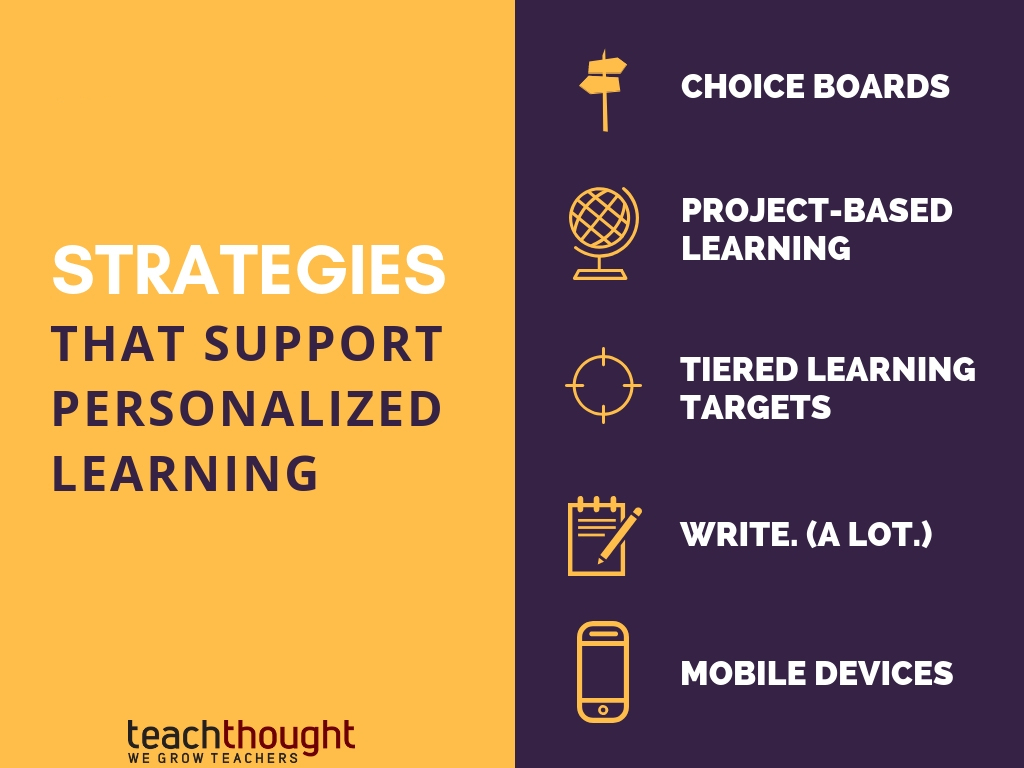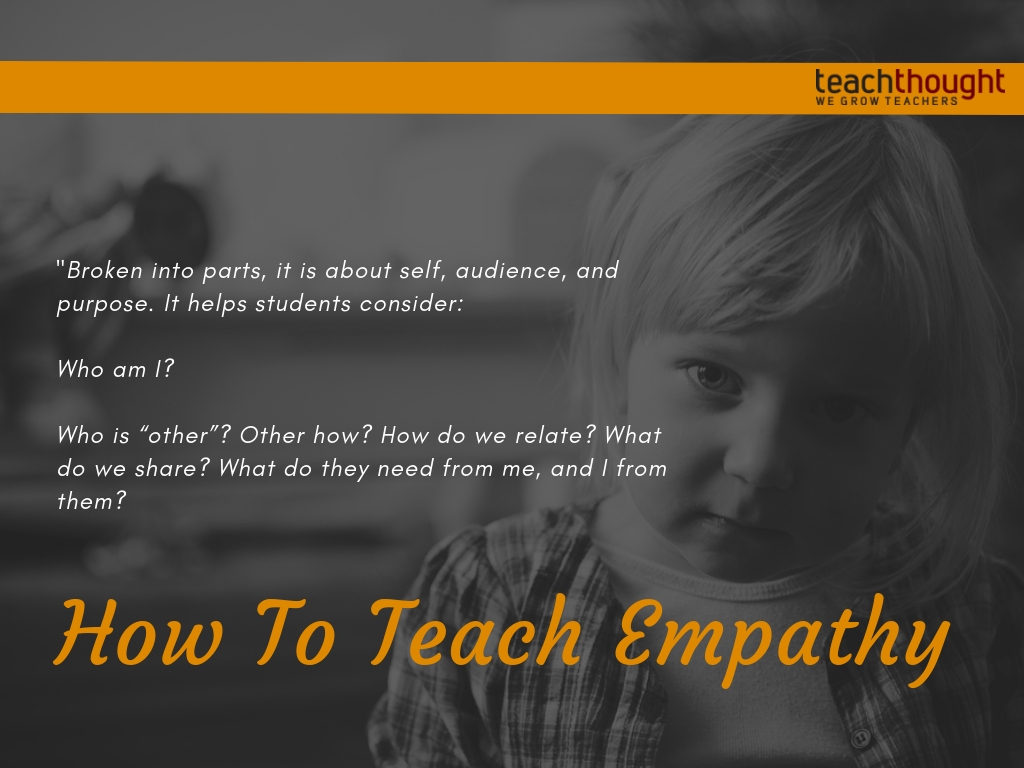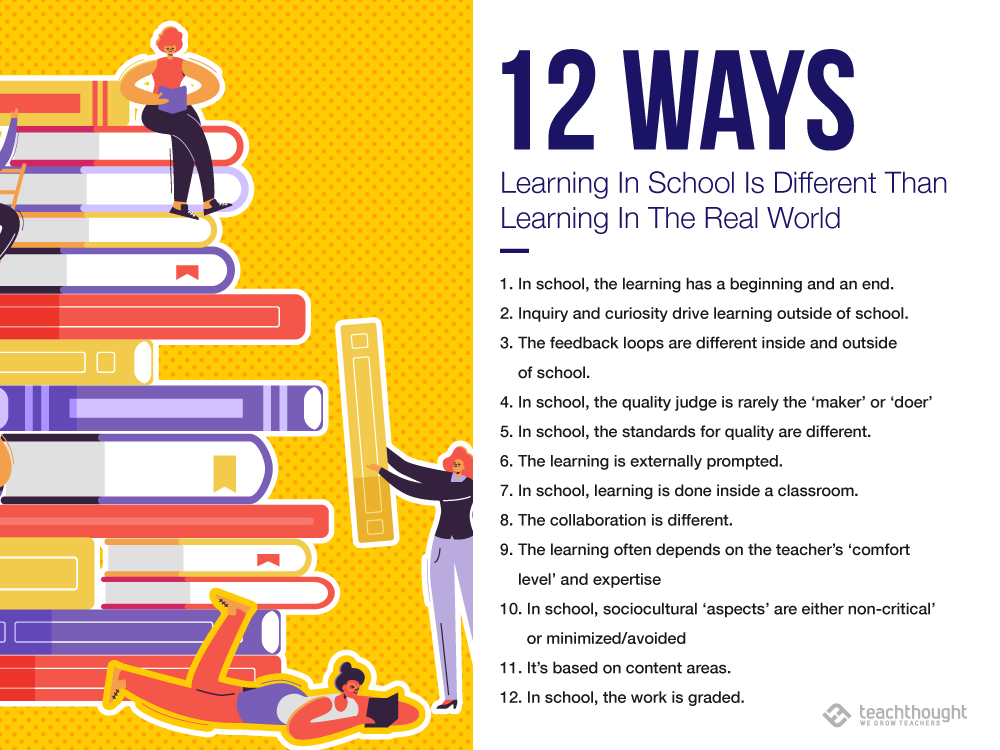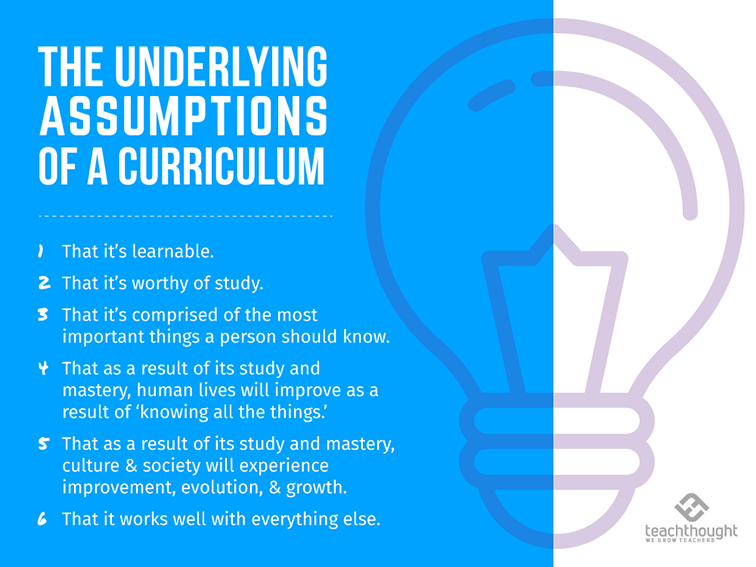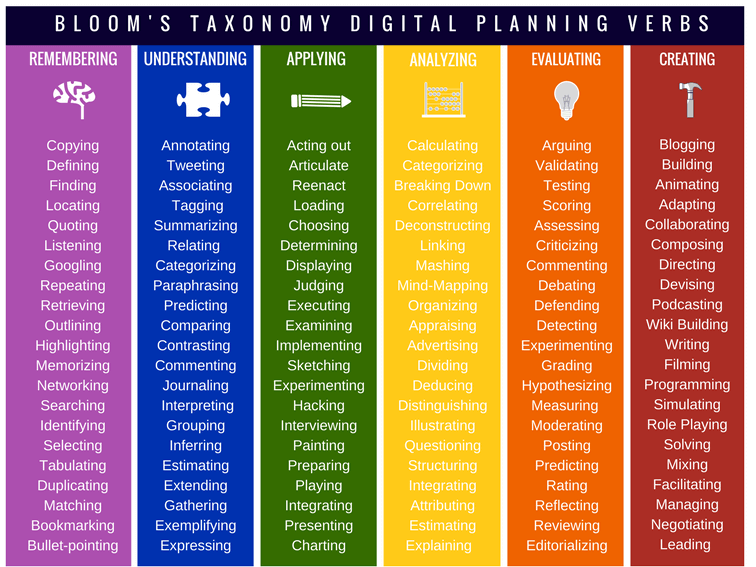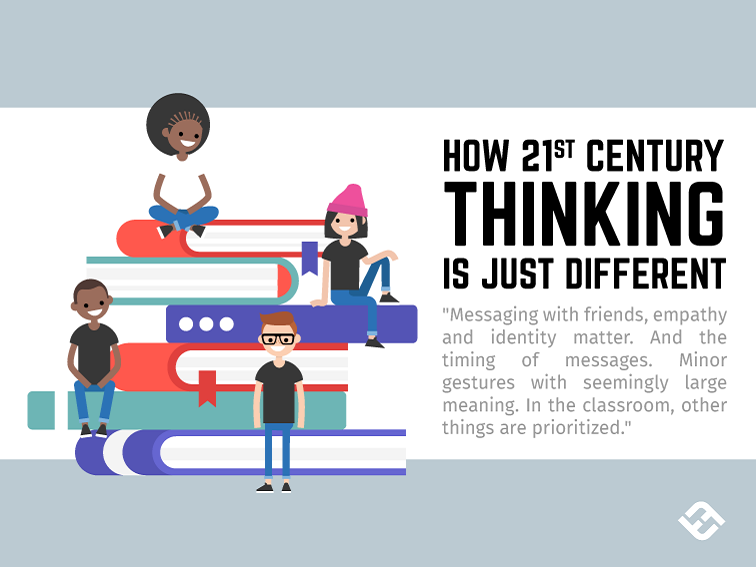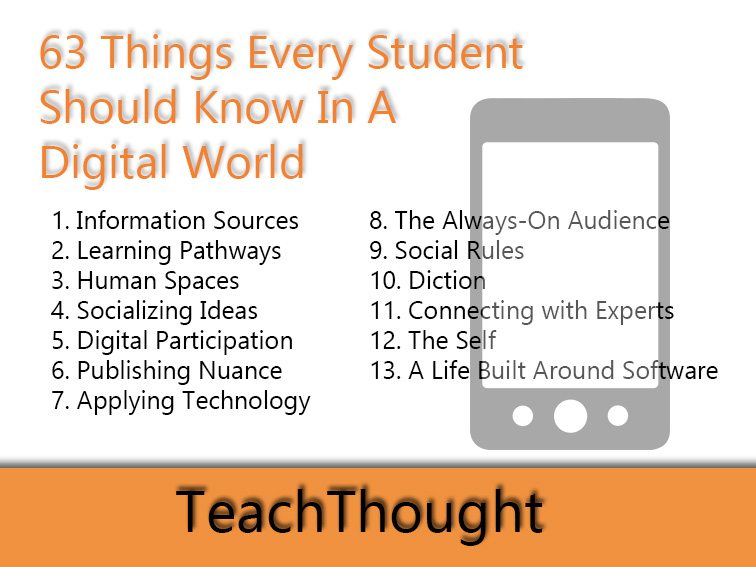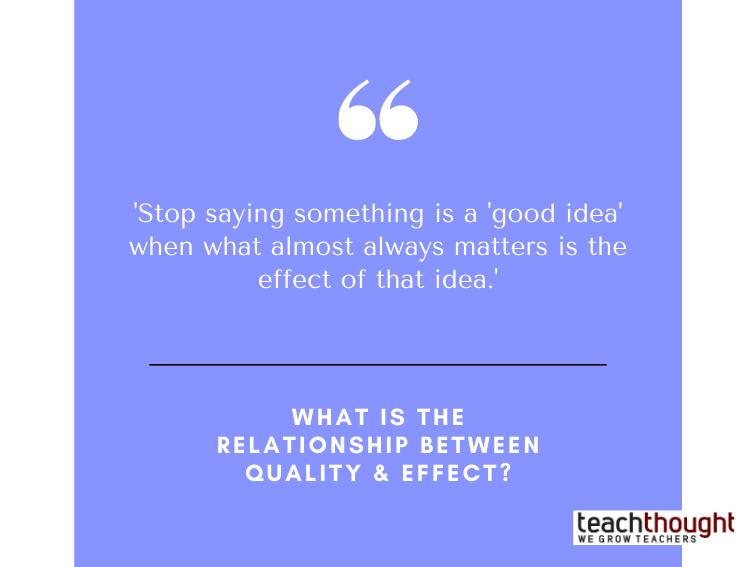Tag: Terry Heick
11 Personalized Learning Strategies That Work
A choice board is a simple personalized learning tool that provides scaffolding, tiering, use of Bloom’s, multiple learning styles, and more.
How To Teach Empathy In The Classroom
Want to teach students empathy? Start by helping students themselves not, “How am I unique?” but rather “How are we the same?”
How Class Learning Is Different Than Real-World Learning
In school, learning is externally prompted by a quality judge, rather than curiosity, genius, or intended application in real-world learning.
The Underlying Assumptions Of A Curriculum
One underlying assumption of a curriculum is that it’s comprised of knowledge and skills that are both knowable and worth knowing.
8 Strategies To Help Students Ask Great Questions
A good question can open minds, shift paradigms, and force the uncomfortable but transformational cognitive dissonance that can help create thinkers.
How 21st Century Thinking Is Just Different
The shift toward a fluid, formless, socialized nature of information, thought, and belief is a not a small one.
63 Things Every Student Should Know In A Digital…
In an increasingly digital world, the things a student needs to know are indeed changing–sometimes drastically.
The Relationship Between Quality And Effect
What is the relationship between quality and effect? It’s partly causal but that’s not exactly it. But there is clearly interdependence.

